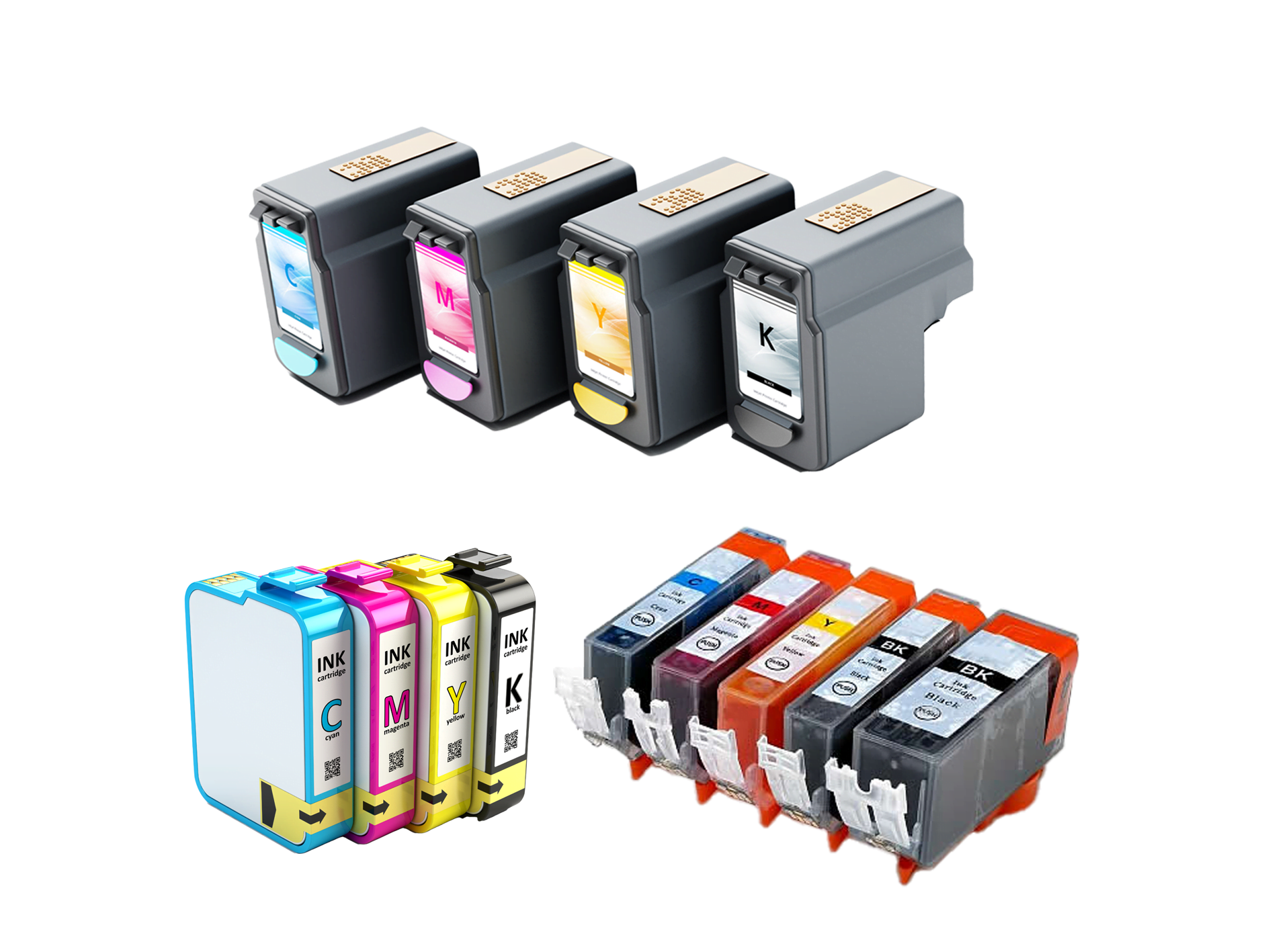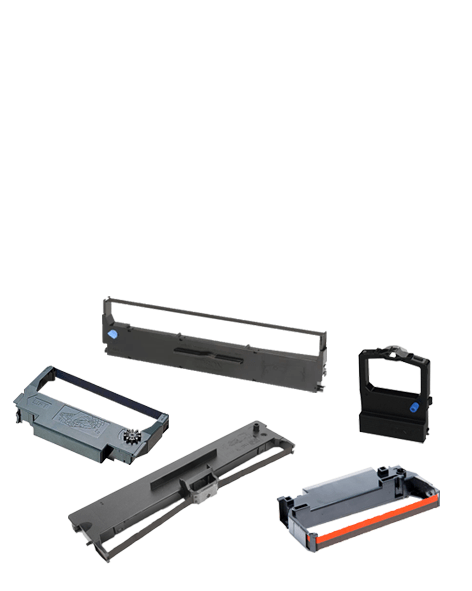Can Printer Warranty Be Voided Over Third-Party Cartridges? What to Know
Did you know that over 60% of printer users in Singapore opt for more affordable third-party ink? Yet many face unexpected hurdles when manufacturers claim their warranties are void. This raises a critical question: Can a compatible cartridge invalidate coverage?
Printer manufacturers often warn against using non-branded supplies, citing potential damage. However, industry standards confirm that high-quality alternatives function safely. Legal protections, such as Singapore’s Consumer Protection (Fair Trading) Act 2003, also challenge unfair warranty terms.
Understanding your rights is essential. While brands may push their products, consumers aren’t powerless. Knowing the difference between scare tactics and enforceable policies helps avoid unnecessary costs.
Key Takeaways
- Many printer brands discourage third-party cartridges, but quality options exist.
- Singapore’s lemon law safeguards against unjust warranty voiding.
- The Magnuson-Moss Warranty Act supports consumer rights in Western markets.
- Manufacturer warnings don’t always hold legal weight.
- Choosing reputable suppliers reduces risks with alternative ink.

Can Printer Warranty Be Voided Over Third-Party Cartridges?
Legal Disputes Over Third-Party Ink Cartridges
Courts worldwide have ruled against unfair tactics to block compatible ink. Major brands like HP, Epson, and Canon faced lawsuits for restricting alternatives. These cases highlight clashes between corporate policies and consumer rights.
The issue of printer manufacturers restricting the use of aftermarket or third-party ink cartridges—and voiding warranties as a result—has led to numerous legal disputes over the years. These cases often concern anti-competitive practices, consumer rights violations, and environmental concerns. Below is an overview of key lawsuits and their outcomes:
Notable Lawsuit Cases and Verdicts
- Issue: Lexmark used microchips in its cartridges to block third-party refills. Static Control reverse-engineered the chips to enable aftermarket sales.
- Lawsuit: Lexmark sued for copyright infringement under the Digital Millennium Copyright Act (DMCA).
- Result: The 6th Circuit Court ruled that reverse-engineering for compatibility was fair use, and Lexmark’s DMCA claims failed. This was a major win for third-party cartridge makers.
- HP’s Dynamic Security Firmware (2016-Present)
- Issue: HP released a firmware update that blocked non-HP cartridges, displaying warnings like “cartridge blocked” or “cartridge problem.”
- Consumer Backlash & Class Actions: Multiple lawsuits alleged deceptive practices and violations of consumer protection laws.
- Settlements:
- HP agreed to pay $1.5 million in 2019 to settle a class-action case in California about Dynamic Security.
- HP paid European customers $1.35 million for Dynamic Security. It also paid a 10,000,000-euro fine to the Italian Antitrust Authority in 2020 over the practice and agreed to pay approximately AUD$50 each to Australian customers in 2018.
- Result: HP continued using DRM-like measures but softened restrictions due to legal pressure.
- Issue: Epson engaged, and continues to engage, in a systematic campaign of disabling Epson printers when the owner attempts to use non-Epson ink cartridges in an effort to improperly and illegally quash competition from third-party manufacturers.
- Class Action: alleging that Epson’s firmware updates are anti-competitive, unfair, fraudulent and oppressive and illegal conduct, stopping the use of third-party consumables.
- Result: The U.S. Magnuson-Moss Warranty Act prohibits blanket voiding of warranties for using third-party parts unless the manufacturer proves damage. Epson revised its warranty terms to comply.
- Brother Printer’s Warranty Restrictions Spawn Anti-Trust Suit (Ongoing Issues)
- Issue: Brother voided warranties if third-party ink was used, even if unrelated to printer malfunctions.
- Legal Challenges: Consumer rights groups argued this violated the Magnuson-Moss Warranty Act (U.S.), which prohibits blanket warranty voiding unless the third-party part directly caused damage.
- Result: No major lawsuit yet, but Brother has faced pressure to revise policies.
Anti-Competitive Practices Exposed
The US FTC condemns “tie-in sales” that force OEM cartridge use. Sherman and Clayton Antitrust Acts prohibit monopolistic behaviour, including firmware locks or misleading warranty terms.
Such tactics inflate consumers’ costs while limiting market choice. Legal precedents confirm that high-quality alternatives don’t inherently damage devices.
Why Singapore Has Fewer Litigations Compared to Western Countries
Singapore’s approach to consumer disputes differs sharply from Western litigious trends. Rather than resorting to lawsuits, locals often prefer mediation or regulatory intervention. This cultural inclination reduces courtroom clashes over issues like printer warranty claims.

Can Printer Warranty Be Voided Over Third-Party Cartridges?
Cultural and Regulatory Differences
Singapore’s Consumer Protection (Fair Trading) Act (CPFTA) emphasises fair outcomes without lengthy legal battles. The Consumers Association of Singapore (CASE) resolves over 80% of grievances through negotiation. Trust in bodies like the Competition and Consumer Commission of Singapore (CCCS) further discourages lawsuits.
Western markets, by contrast, face aggressive manufacturer tactics like firmware locks. Singapore’s smaller market size makes such strategies less profitable, reducing anti-competitive behaviour.
Consumer Behaviour and Market Dynamics
Price sensitivity drives demand for affordable ink, even with warranty risks. Yet, Singaporeans prioritise practicality over legal action. CASE’s efficient dispute resolution offers a faster alternative to courts.
Globally, the Razor & Blade Strategy fuels litigation, but Singapore’s balanced regulations curb such extremes. Here, consumers and brands often find middle ground without lawsuits.
Regulatory Protections in Singapore
Singapore’s regulatory framework ensures robust safeguards for consumers facing warranty disputes. Authorities actively intervene to prevent manufacturers from imposing unfair terms, especially regarding alternative ink usage. This balance fosters market competition while protecting buyer rights.
Consumer Protection (Fair Trading) Act (CPFTA)
The CPFTA’s “lemon law” mandates that warranties remain valid unless third-party cartridges directly harm the device. Manufacturers must prove causation to void coverage. This shifts the burden of proof, empowering consumers to challenge unjust claims.
Role of the Competition and Consumer Commission of Singapore (CCCS)
CCCS investigates anti-competitive practices, including restrictive DRM locks on cartridges. Penalties for violations include fines and corrective orders. Recent probes into printer firms highlight their commitment to fair market access.
| Body | Key Powers | Recent Actions |
|---|---|---|
| CPFTA | Enforces warranty fairness | Lemon law rulings (2023) |
| CCCS | Penalises DRM abuse | Cartridge policy reviews |
How CASE Addresses Consumer Grievances
The Consumers Association of Singapore (CASE) mediates disputes efficiently, resolving 80% without litigation. Free advisory services help consumers navigate warranty conflicts, often securing refunds or repairs.
Anti-Competitive Behaviour and DRM Restrictions
Singapore’s Competition Act classifies DRM locks as unfair if they stifle competition. Legal precedents support this stance, ensuring consumers retain choice without sacrificing warranty rights.
Future Developments and Consumer Actions
Proposed reforms may soon expand legal protections for Singaporean consumers. Authorities are reviewing warranty policies to curb unfair practices, particularly around compatible ink. These changes aim to balance manufacturer interests with buyer rights.
Potential Changes in Warranty Laws
Amendments to the Consumer Protection (Fair Trading) Act (CPFTA) could strengthen safeguards. One proposal requires manufacturers to prove third-party cartridges caused damage before voiding coverage. Another mandate is clearer disclosure of warranty terms at purchase.
Such reforms align with global trends challenging restrictive DRM locks. Singapore’s Competition Commission may also penalise firms enforcing anti-competitive ink policies.
Steps Singaporean Consumers Can Take
If faced with unjust warranty claims, buyers should:
- Document all communications with the manufacturer.
- Request written evidence linking damage to non-OEM cartridges.
- Escalate disputes to CASE for mediation.
Keeping receipts and cartridge packaging helps prove compatibility. CASE’s free advisory services often resolve issues within weeks.
Sample Complaint Letter for Unfair Warranty Voiding
A formal complaint should include:
“[Your Name]
[Address]
[Date]
Subject: Unjustified Warranty Voiding – [Printer Model]
Dear [Manufacturer],
I contest the invalidation of my warranty due to third-party ink use. Under CPFTA, you must demonstrate causation. Please reinstate coverage or provide repair details within 14 days.”
Understanding Singapore Warranty Laws
Statutory warranties cover defects for six months post-purchase. The burden falls on sellers to prove misuse or incompatible parts caused faults. Recent rulings reinforce that high-quality alternatives don’t inherently void guarantees.
In Singapore, the primary authority to handle complaints about a printer manufacturer voiding warranties for using third-party cartridges is the Consumers Association of Singapore (CASE). CASE acts as a first point of contact for consumer disputes and can assist in mediating or filing a case with the Small Claims Tribunal if necessary.
- CASE as a Consumer Advocate:
- CASE is a non-profit organisation that protects consumer interests and encourages fair trade practices. They can help you navigate the complaint process and potentially reach a settlement with the printer manufacturer.
- CPFTA and Unfair Practices:
- The Consumer Protection (Fair Trading) Act (CPFTA) allows CASE to seek legal action if a supplier (like the printer manufacturer) is engaging in unfair practices, potentially including voiding warranties based on third-party cartridges.
- Small Claims Tribunal (SCT):
- If CASE cannot resolve the issue, you can file a case with the Small Claims Tribunal, which is a court that handles consumer disputes involving amounts under a certain threshold.
- Complaint Process with CASE:
- Submit an online complaint on the CASE website.
- CASE officers will assess your situation and advise you on the next steps, which may include assisted schemes, filed cases, or mediation.
- Fees may apply, depending on the type of assistance you receive from CASE.
Conclusion
Consumers in Singapore have strong legal safeguards against unjust warranty claims. The CPFTA ensures manufacturers must prove damage before denying coverage, protecting buyers who opt for affordable ink alternatives.
Choosing certified cartridges from trusted suppliers minimises risks. High-quality options perform reliably without compromising device functionality. This balance of cost-efficiency and performance benefits users.
For unresolved disputes, CASE offers mediation. Their intervention often secures fair outcomes without legal battles. Remember, a manufacturer cannot void guarantees without evidence linking faults to non-OEM supplies.
Staying informed empowers consumer choices. Users enjoy savings without sacrificing printer reliability by understanding rights and selecting reputable products.
FAQ
Can using third-party ink void my printer’s warranty?
Some manufacturers claim that non-branded cartridges may damage the device, leading them to refuse repairs under warranty. However, consumer protection laws in many regions challenge this practice.
Are there legal cases against manufacturers for unfair warranty policies?
Yes, lawsuits have emerged in countries like the US and EU, where courts ruled against firms like HP and Epson for restricting third-party ink use. These cases highlight anti-competitive behaviour.
Why does Singapore see fewer legal disputes over printer warranties?
Stronger regulatory frameworks, cultural differences in consumer complaints, and market dynamics reduce litigation. Authorities like CCCS actively monitor unfair trade practices.
What protections exist under Singapore’s CPFTA?
The Consumer Protection (Fair Trading) Act prohibits unfair terms, including unjustified warranty voiding. Consumers can seek recourse through CASE or the Small Claims Tribunal.
How can I challenge a voided warranty due to third-party ink?
Gather evidence, cite relevant laws like CPFTA, and submit a complaint to CASE. A formal letter outlining the issue may prompt the manufacturer to reconsider.
Do manufacturers use DRM to block third-party cartridges?
Brands like Brother and Canon have employed digital rights management (DRM) chips, which detect non-OEM ink. Critics argue this stifles competition and consumer choice.
Will warranty laws evolve to better protect consumers?
Advocacy groups push for reforms, particularly against restrictive terms. Singapore’s CCCS periodically reviews policies to align with fair competition standards.

























 Other
Other











